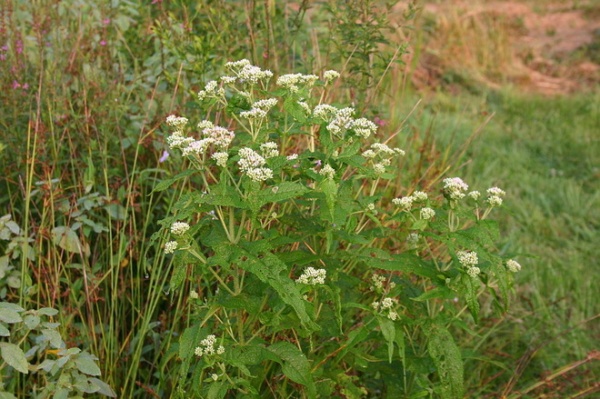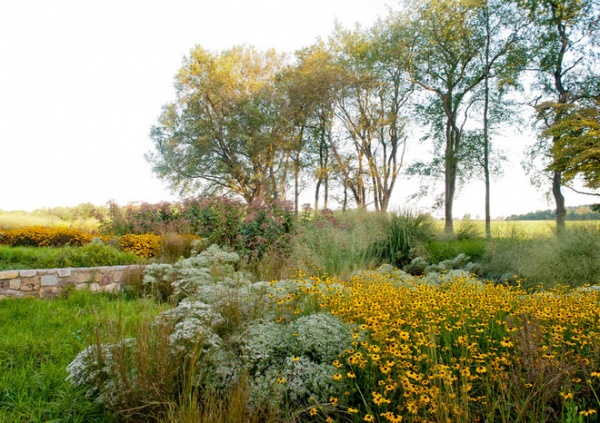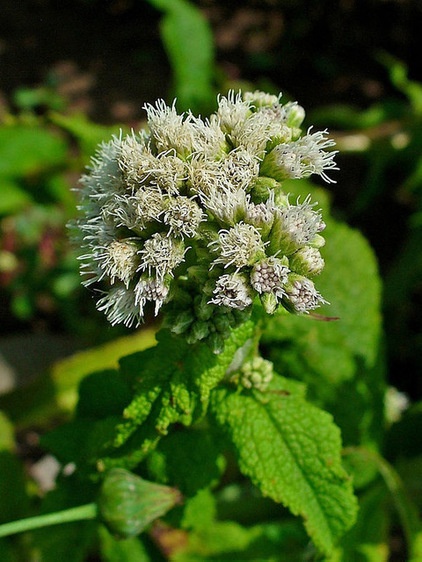Great Design Plant: Boneset Helps Good Bugs Thrive
http://decor-ideas.org 06/06/2014 19:17 Decor Ideas
Boneset has a quirky name. The leaves were used either under splints to theoretically help bones heal, or to treat dengue fever (also called break bone fever). In any case, what boneset does help immensely with is creating a thriving insect community, from bees to moths and butterflies. It’s not a bad-looking landscape plant, either.

Botanical name: Eupatorium perfoliatum
Common name: Boneset
Origin: Native from the eastern Dakotas down to eastern Texas and east to the Atlantic and New England
Where it will grow: Hardy to -40 degrees Fahrenheit (USDA zones 3 to 8; find your zone); best planted if native to your area
Water requirement: Moist to medium soil
Light requirement: Full sun to 25 percent shade
Mature size: 3 to 4 feet tall and 2 to 3 feet wide
Benefits and tolerances: Very low maintenance; great for rain gardens; an insect magnet
Seasonal interest: Sports a head of small yellow flowers during spring before most others are flowering
When to plant: Spring to fall; seed in fall or winter
Photo by SB Johnny

Distinguishing traits. Boneset’s blooms are held aloft in clumps at the top of the stem — this is where you can see that it’s a relative of Joe Pye Weed. The stems and leaves emerge fuzzy in spring and are great to include in a tactile children’s garden.
How to use it. As a single specimen, it can hold its own in a cottage- or prairie-style garden, or even in a more formal border. But where it might really shine is in groups and massed drifts, especially as a transition plant between ground covers and taller architectural plants like Indian grass or switchgrass. I find it quite versatile.

Planting notes. Boneset prefers a consistently moist soil (clay to loam) and will scorch in dry soil. I find it does fine in medium clay that goes through a boom and bust cycle of rain (which makes it ideal for rain gardens or dry creek beds).
Boneset is in my top 10 plants to support pollinators for the nectar it provides. The bloom time might be short, at about a week, but the subsequent seed heads are ornamental — and you really do get a massive number of hungry insects. Try it on for size!
See more ways to attracts wildlife to your garden
Photo by H. Zell
Related Articles Recommended












